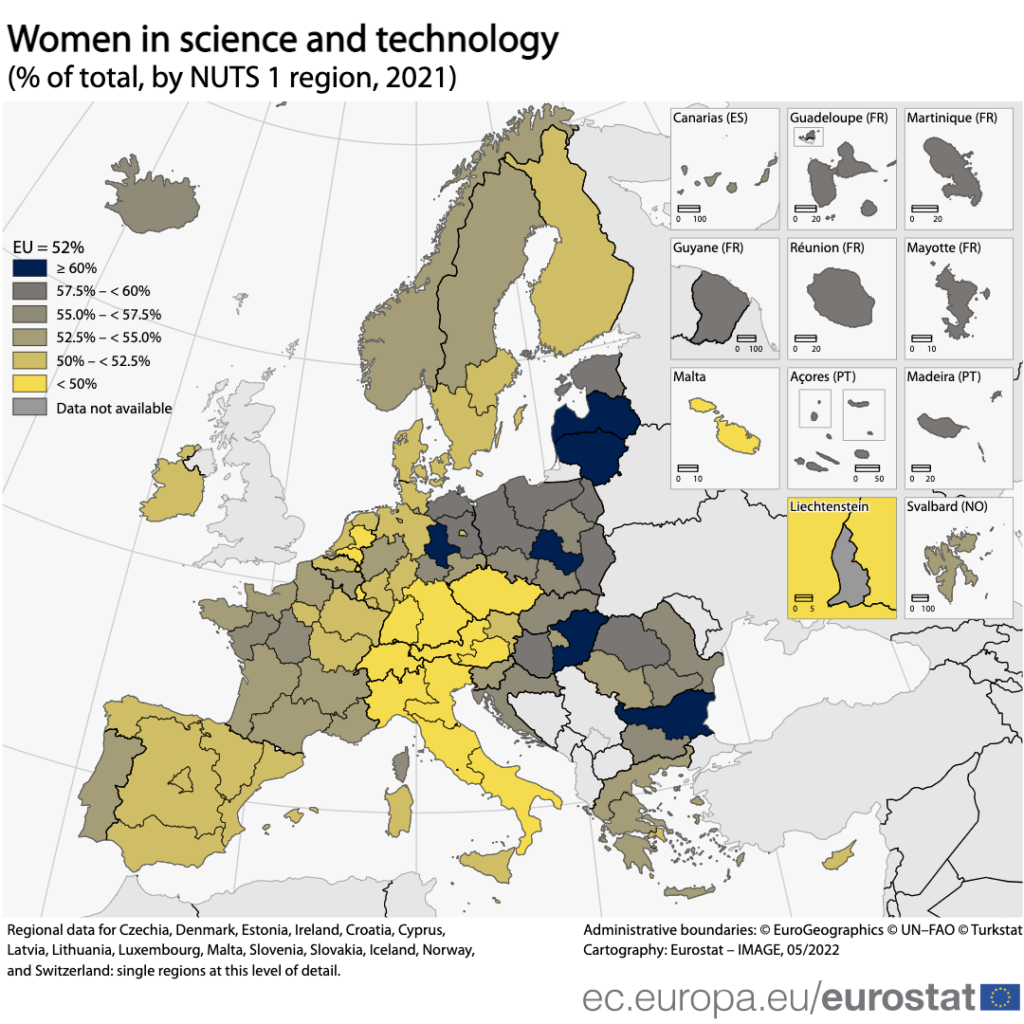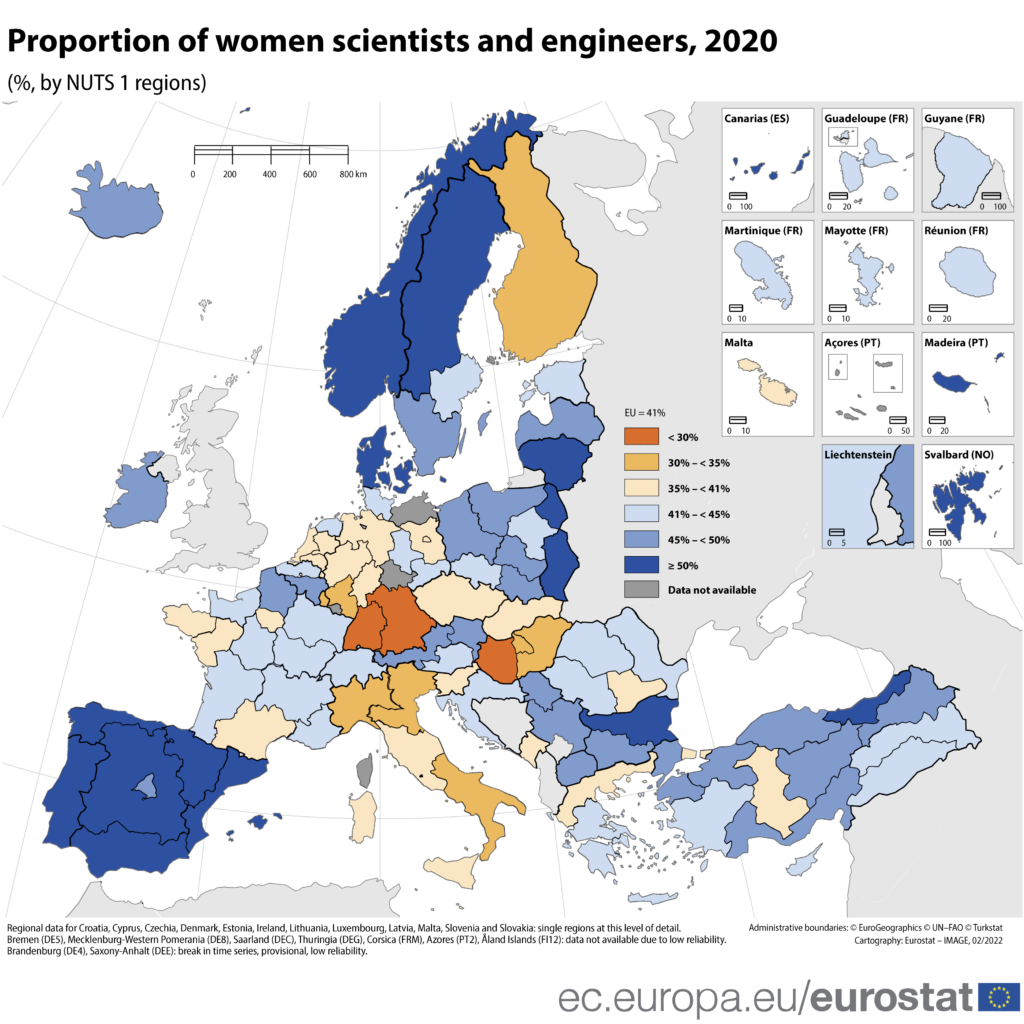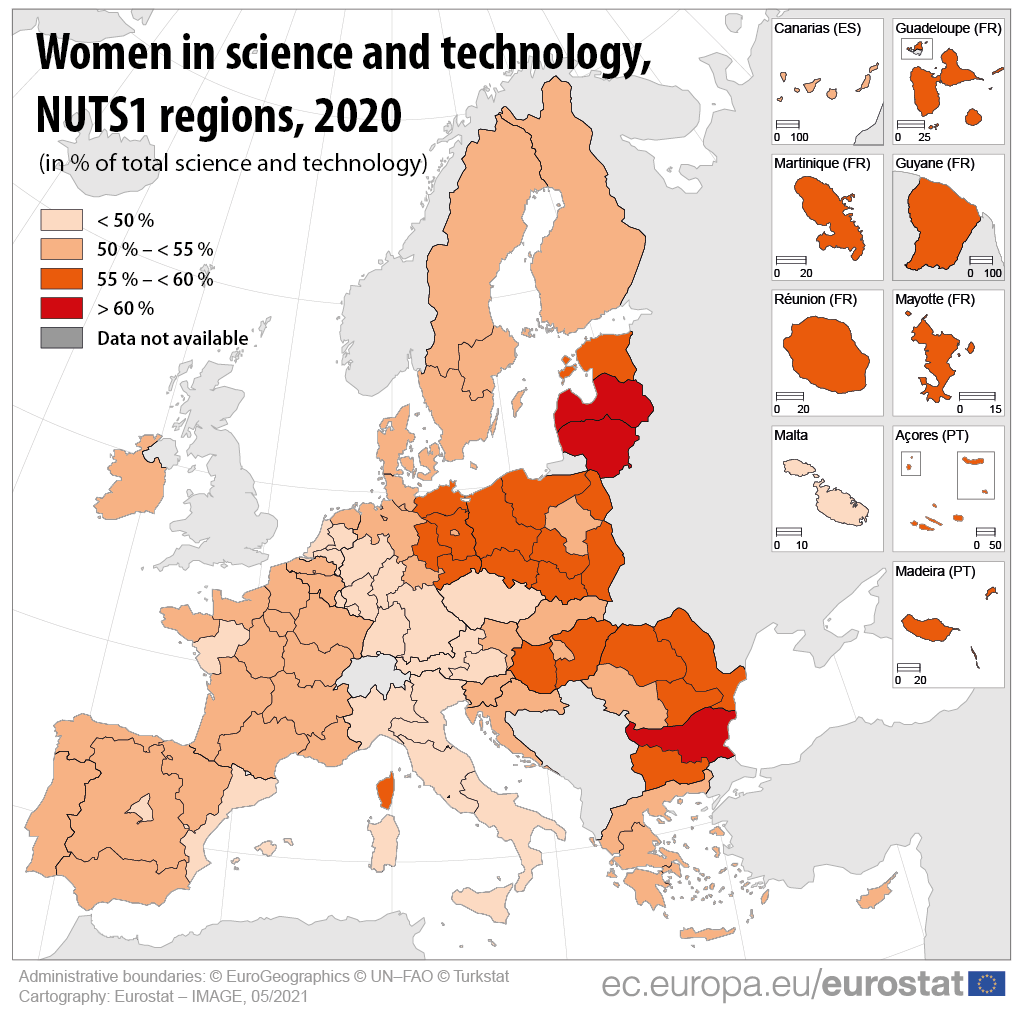International Women’s Day
8th March 2023 at 10:08 am
Today, we celebrate International Women’s Day!
We at accelopment recognize the importance of gender equality and strongly value diversity and inclusion. We are committed to creating an environment where everyone can reach their full potential and achieve their goals.
To mark this day, we have gathered some enlightening statistics on the involvement of women in science and technology fields in the EU provided by Eurostat.
🎓 In many EU Member States, the number of women in university-level education is at least equal to, or even greater than, the number of men. Furthermore, the number of female doctorate students has increased more rapidly than the number of male doctorate students.
🔬 In 2020, of almost 73 million persons employed in science and technology in the EU, nearly 37.5 million were women (51.3%) and 35.5 million men (48.7%)..
🧪 Of the 74 million people employed in science and technology in 2021 in the EU, 52% were women, +4% compared with 2020 and +26% compared with 2011.
📊 Data show that the female workforce grew more than their male counterparts (+1% increase in male representation male compared with 2020 and +16% compared with 2011).
🌍 Among EU regions, the highest share of women employed in science and technology in 2021 was observed in Lithuania and Latvia, with 63.7% and 62.9% women respectively.
🌿 An analysis by age shows that more than half (53.3% or 9.4 million) of the 17.6 million young people aged 25 to 34 working in science and technology in 2021 were women.
⬆ In a decade, the number of women working in this field increased by 14.8% (the equivalent of +1.2 million women). By comparison, the number of men in this area increased by 10.8% since 2011 to 8.2 million in 2021.
🔧 In 2020, there were almost 6.6 million female scientists and engineers in the EU, 254,500 more than in 2019.
🌎 Among EU regions, female scientists and engineers were in the majority in Portugal, Canary Islands, Bulgaria, Poland, Sweden, Latvia, Lithuania and Denmark.



We hope these statistics encourage more women to pursue a career in science and technology, empowering them to make a positive contribution to our world.
